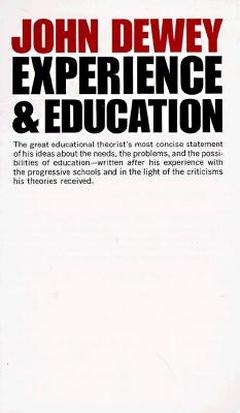My Pedagogic Creed: Democratic Learning Communities

Within this site you will find my understanding of the concepts of democracy, learning, and community and how those three concepts come together to form Democratic Learning Communities. This project is for a graduate level class at the University of Minnesota-Twin Cities titled "The Democratic Learning Community" within the School of Curriculum and Instruction. This is one of many courses I am taking in order to earn my Master's of Education in Youth Development and Leadership and it is one that I definitely see myself referring back to in my work with young people, both in formal and informal or non-formal learning settings.
Below is a brief definition of a democratic learning community, and in the tab labeled "My Pedagogic Creed" you will find a more in depth analysis of each concept individually. The assignment is based off of Dewey's Pedagogic Creed. Dewey is a huge inspiration to myself and other youth workers and I hope that my understanding of Democratic Learning does justice to the work he's done for informal and experiential education, both of which factor greatly into a democratic classroom. Another resource that I've relied heavily on in my journey to better understanding and implementing experiential education, democratic learning and non/informal learning is Dewey's short, but thorough book titled Experience and Education, more information about this text can be found by clicking the book cover to the left.
Democratic Learning Communities
A democratic learning community is one in which each member has equal opportunity to influence change and contribute to the learning environment in a real and respected way. A democratic learning community is one in which learning is understood as something that every single person is capable of doing and has the right to access. In a democratic learning community the educator is no longer the omniscient teacher, telling students what to know and how to learn it, but is rather a facilitator of daily learning, one who understand the many ways in which individuals learn and values the opinions/ideas/knowledge of each learner while providing them with ample space to share that knowledge with the rest of the community. Simply put, a democratic learning community is one in which learners are educators and educators are learners, both of whom contribute to the educational discourse of the learning space and both of whom share power, never wielding it in an attempt to control or manipulate the learning or the space in which it occurs.
Below is a brief definition of a democratic learning community, and in the tab labeled "My Pedagogic Creed" you will find a more in depth analysis of each concept individually. The assignment is based off of Dewey's Pedagogic Creed. Dewey is a huge inspiration to myself and other youth workers and I hope that my understanding of Democratic Learning does justice to the work he's done for informal and experiential education, both of which factor greatly into a democratic classroom. Another resource that I've relied heavily on in my journey to better understanding and implementing experiential education, democratic learning and non/informal learning is Dewey's short, but thorough book titled Experience and Education, more information about this text can be found by clicking the book cover to the left.
Democratic Learning Communities
A democratic learning community is one in which each member has equal opportunity to influence change and contribute to the learning environment in a real and respected way. A democratic learning community is one in which learning is understood as something that every single person is capable of doing and has the right to access. In a democratic learning community the educator is no longer the omniscient teacher, telling students what to know and how to learn it, but is rather a facilitator of daily learning, one who understand the many ways in which individuals learn and values the opinions/ideas/knowledge of each learner while providing them with ample space to share that knowledge with the rest of the community. Simply put, a democratic learning community is one in which learners are educators and educators are learners, both of whom contribute to the educational discourse of the learning space and both of whom share power, never wielding it in an attempt to control or manipulate the learning or the space in which it occurs.
